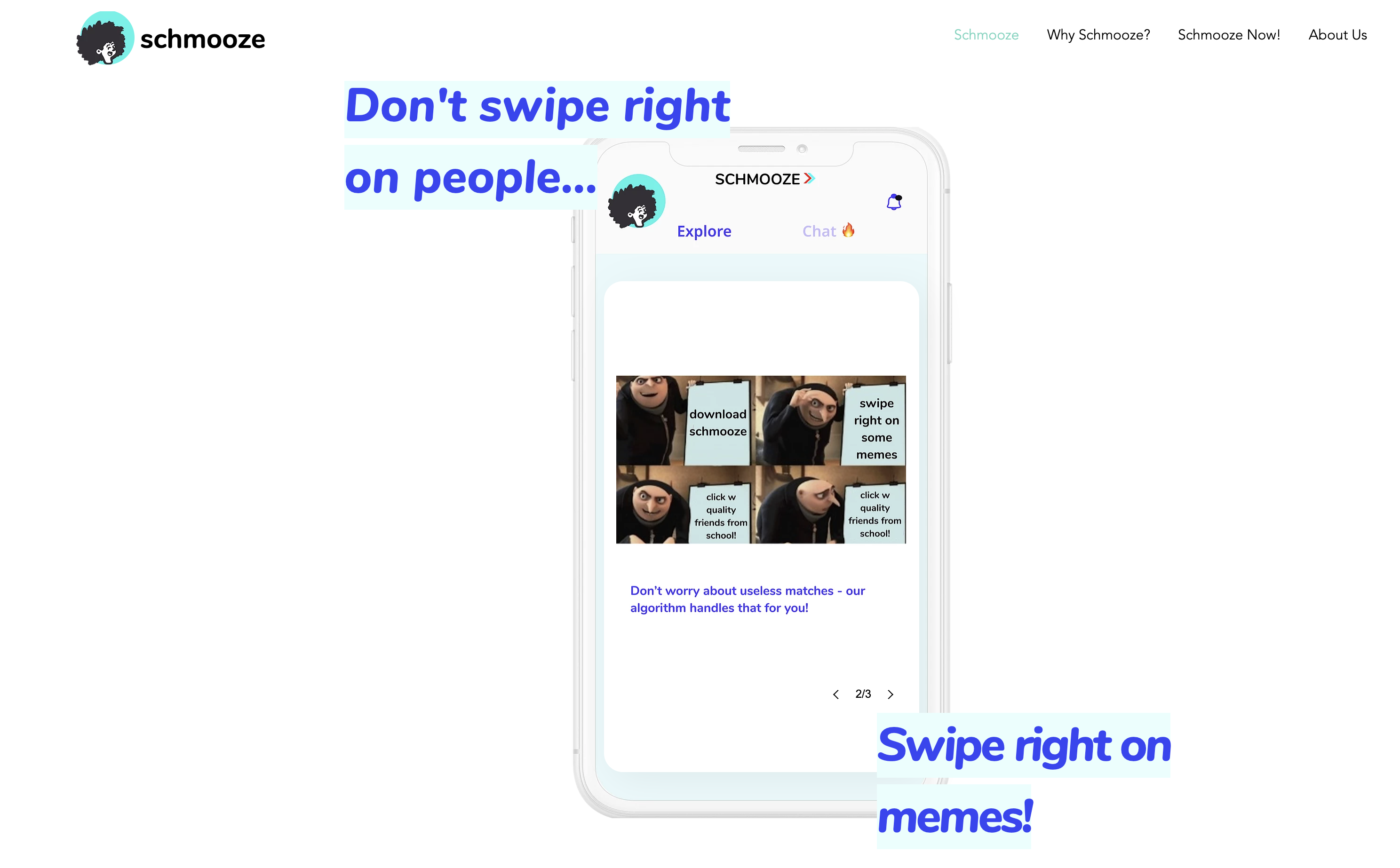Like many young people, Vidya Madhavan MBA ’21 sees memes as a light-hearted respite from the often toxic nature of social media. In the midst of the global pandemic, she founded Schmooze, a Tinder-esque app that fosters online connections based on meme taste.
“I realized that mental health is becoming an issue now more than ever because of all these platforms where you just look at the picture-perfect lives of others, over and over, and feel that your life is worse than it is,” she said.
A second-year MBA candidate at the Graduate School of Business, Madhavan discovered the potential for meme-based connection while managing another venture, LuMos Inc., an AI-powered startup aimed towards editing passport and visa photos.
“When I started sharing this platform with folks on campus, they actually used it to edit memes. I had always been a meme consumer, like most others, but I never thought you could make a business out of it,” Madhavan said.
In April, when the COVID-19 pandemic led to global lockdowns, Madhavan noticed that meme consumption skyrocketed as in-person social exchanges were lost.
“All said and done, you cannot take away the fundamental need of human beings to stay connected with each other,” Madhavan said on deciding to pivot into the meme sphere.
Schmooze users can swipe right on the memes they relate to or find funny, and the app will connect people with compatible tastes.
“Your sense of humor in memes says a lot about the kind of people who’ll become your good friends,” more so than the surface-level qualities that may dominate other social networks, according to Madhavan.
Collin Douglas ’22 and Christina Joo ’23 learned about the startup through the Business Association of Stanford Entrepreneurial Students and led a marketing effort this summer to recruit 200 Stanford students for initial beta testing. Both share Madhavan’s take on the power and depth of meme-based connections.
“Homemade memes are highly underrated,” Douglas said. “The use of a trending meme format to poke fun at a friend or remember a wild memory is substantially funnier than seeing a meme that alludes to popular culture more broadly,” he said, attributing the traction of Facebook’s “Stanford Memes for Edgy Trees” or Instagram’s @litquidity to their targeted delivery of comedic content.
For the average Stanford student, Schmooze can supplement Instagram and Facebook as a “constant stream of fun and humor,” Joo said, “where it’s really easy to group memes into collections that you can share” and “where you can take a break from having to put up this front that’s not super authentic” on social media.
Beta tester Cathy Yang ’21 M.S. ’22 found the meme-driven social network “pretty hilarious” and appreciated how Schmooze offered “basic image-editing features along with a wealth of meme templates.”
Interpreting other memers’ niche creations was, at times, challenging due to the lack of situational context, according to Yang.
Beyond content sharing, Madhavan thinks Schmooze’s specialized focus can change and democratize meme creation.
“I envision a world where memes are a language,” she said. “Today, I feel that memes are like Latin, which very few people can speak, but most of us consume.”
Though this project was born out of COVID-19, Madhavan believes Schmooze will continue to be relevant for college students long after in-person interactions resume.
“My wish is for Schmooze to really go big,” Madhavan said. The universality of memes makes her confident that the forum can “algorithmically create these groups” based on even the most eclectic shared interests, and then “have people take over” to organically forge long-lasting bonds.
“COVID has acted as a trend accelerant” for memes, Douglas said, to the point where “people have become more reliant on memes to track the news,” a pattern he predicted will not dwindle anytime soon.
Contact Shruti Sridhar at shrutisr ‘at’ stanford.edu.
